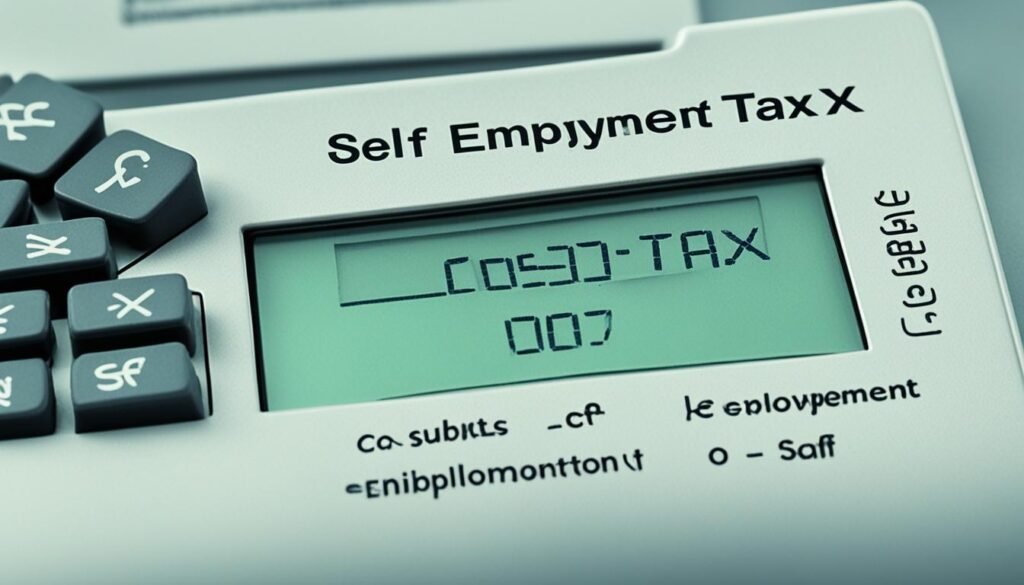Table of Contents
ToggleThe gig economy is a way to make money by offering services or goods when needed. This is done through digital platforms such as apps or websites. Income made in the gig economy is taxable, even if you do it part-time or as a side job.
If you earn money this way, you’re responsible for your own taxes. This means you have to keep track and report your income correctly. You’ll also have extra tax duties, like making estimated tax payments and paying self-employment tax. It’s important to properly file your taxes because the Internal Revenue Service (IRS) watches gig workers closely. They check for incorrect income reporting or deductions without proof.
Failing to manage your taxes in the gig economy correctly can lead to fines and interest. So, knowing and meeting your tax requirements is key for anyone in the gig economy.
Key Takeaways
- The gig economy involves earning income through digital platforms for on-demand work, services, or goods.
- Gig economy income is considered taxable, even if it’s from part-time or temporary work.
- Gig workers have additional tax responsibilities, such as making estimated tax payments and paying self-employment tax.
- The IRS closely scrutinizes gig workers for underreported income and unsubstantiated deductions.
- Proper handling of gig economy taxes is crucial to avoid penalties and interest.
Understanding the Gig Economy
The gig economy is where people make money by offering work, services, or items online. They use apps or websites to do this. More and more people and companies are part of it. It offers more flexibility in how and when they work. Yet, it comes with new problems and things to do about taxes.
What is the Gig Economy?
In simple terms, think of the gig economy as work available any time, any place. People do tasks when needed, such as driving for ridesharing or selling things online. This way of working is thanks to apps and websites that connect workers with those who need their services.
Gig Economy Income is Taxable
In the gig economy, what you earn counts as income that needs to be taxed. This rule applies whether it’s a full job or just a side hustle. If you’re working gigs, you have to tell the government and manage your taxes on your own. This means keeping track of what you earn and what you spend on your business.
What is Gig Work?
Gig work covers a lot – from ride-sharing to renting rooms on home-sharing sites, to everyday tasks through apps. It could also be selling your items online or freelance jobs. The key is that those who do gig work are their own bosses. They only work for a while on certain projects.
What are Digital Platforms?
These days, getting gigs is easy thanks to online digital platforms. These are the apps and websites that let workers offer their services to customers. Think of ridesharing with Uber, or finding a place to stay with Airbnb. They make finding and doing work quick and easy.
Reporting Income from Gig Work

The gig economy is getting bigger, so freelancers and other workers need to know about taxes. Even small jobs need to be reported on taxes, like money made from part-time gigs. This is true even if they don’t get a 1099 form.
They should also report any payments, whether it’s cash or digital money. These rules apply to everyone working freelance or doing gigs.
Forms to File for Gig Income
If you’re in the gig economy, you might need to fill out special forms. Schedule C and Schedule SE are two common ones. They help you show the government how much you made and what you can deduct.
Keeping Accurate Records
It’s really important to keep track of your money and what you spent. Write down every bit of money you make, even if it’s through an app or website. Also, write down what you spend on your job, like on gas or tools. This can lower how much you owe in taxes.
Estimated Tax Payments for Gig Workers
As independent contractors in the gig economy, you must pay estimated taxes. The IRS needs these every April 15, June 15, September 15, and January 15. They include income taxes and self-employment taxes.
When to Pay Estimated Taxes
You need to pay estimated taxes to the IRS to avoid extra charges. Gig workers face quarterly deadlines. This makes sure you pay the taxes as you earn your gig economy income.
How to Pay Estimated Taxes
There are several ways to pay. You can choose online, mail, or phone methods with Form 1040-ES. This tool is for both freelancers and independent contractors. It helps you send the right amount to the IRS every quarter.
How to Estimate Taxes
To figure out how much to pay, use the IRS Publication 505 or the 1040-ES worksheet. With these, workers in the gig economy estimate both self-employment and income taxes.
Paying your estimated taxes on time avoids extra fees. This is crucial for gig workers when they file their annual returns.
Self-Employment Tax Implications

Gig workers in the gig economy must know about self-employment tax. The IRS sees them as independent contractors. So, they have to cover the whole 15.3% self-employment tax. This includes Social Security and Medicare, unlike regular employees.
Understanding Self-Employment Tax
Gig workers face a big financial duty in the form of the self-employment tax. This tax is based on their net earnings from working for themselves. Whether they work through digital platforms or as freelancers, it applies.
It’s really important for them to pay these taxes every three months. This ensures they avoid penalties and extra charges.
Deducting Self-Employment Tax
Even though the self-employment tax burden is high for gig workers, there is good news. They can deduct half of their self-employment tax from their income. This reduces how much they owe. So, they don’t feel the full weight of the 15.3% self-employment tax rate.
To handle self-employment tax well, knowing and using deductions is key. This is crucial in the gig economy when it comes to taxes. Being smart about it helps gig workers deal with their tax issues better.
Gig Economy

The gig economy is growing fast. It’s also known as the sharing economy or access economy. More and more, people are making money from on-demand work, offering services or selling goods. They do this through digital platforms like apps and websites. This type of work offers greater flexibility and a better work-life balance for many. But there are additional tax responsibilities and risks of IRS scrutiny compared to regular jobs. It’s important for people doing this work, known as independent contractors and freelancers, to know about the tax implications.
Deductible Business Expenses
In the gig economy, gig workers can lessen their taxes by deducting certain business costs. This includes money spent on things like journeying for rideshares or grabbing supplies for jobs. Yet, the IRS checks these deductions closely. They might see some expenses as personal, not for business.
Also Read: Freelance Content Writer Jobs: Top Opportunities
Ordinary and Necessary Expenses
Gig workers need to make sure the expenses they wish to deduct are very necessary for their gig work. They also must be common in their line of work. Anything spent should clearly help them do their job better.
For instance, a rideshare driver can count the money spent on gas and car care. A freelance handyman can list the tools they bought as business costs too.
Keeping Expense Records
To lower their tax bill, gig workers should keep careful records of their expenses. This way, if the IRS asks, they can show proof. Keeping receipts, logs of miles driven, and other documents is a must. It shows the expenses are indeed for working. This detail is vital because the IRS might mistake work expenses for personal ones.
FAQs
Q: What is the gig economy?
A: The gig economy refers to a workforce where individuals work in independent and flexible arrangements, often using online platforms to find work.
Q: How do people earn income in the gig economy?
A: Workers in the gig economy earn income by providing on-demand work, such as freelance projects or temporary job assignments.
Q: What are the tax implications for independent workers in the gig economy?
A: Independent workers in the gig economy are considered self-employed, which means they are responsible for paying their own taxes, including self-employment taxes.
Q: What are the challenges faced by workers in the gig economy?
A: Workers in the gig economy may face inconsistent income, lack of benefits, and uncertainty around job security.
Q: How is the gig economy expected to evolve by 2024?
A: Experts predict that the gig economy will continue to grow, with more people choosing flexible work arrangements and companies increasingly relying on independent workers.
Q: Who defines the term “gig economy”?
A: The term “gig economy” was popularized to describe the trend of temporary and flexible job opportunities driven by online platforms and digital technologies.
Q: How does the gig economy impact the traditional labor market?
A: The gig economy introduces new ways for people to work and earn income, challenging traditional employment models and potentially reshaping the future of work.




